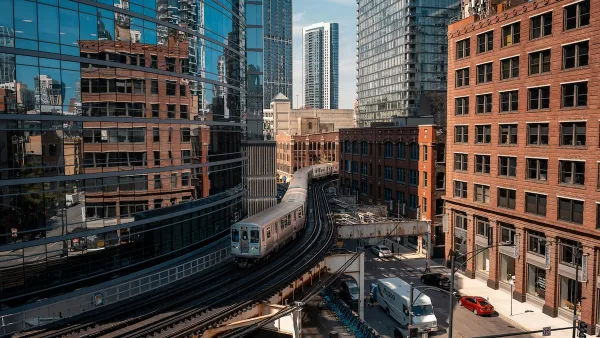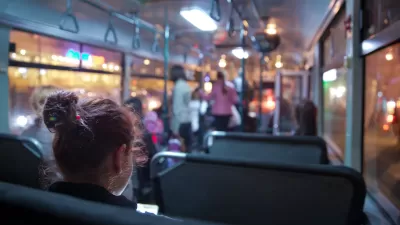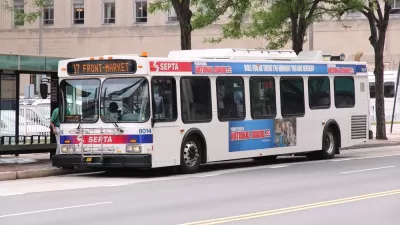A recent article tackles the counter-intuitive state of transit investment in the St. Louis region: “While the abundance of transit possibilities create a veneer of progress, the region is quietly in a public transit state of crisis.”
Scott Ogilvie examines the current morass preventing the St. Louis region’s political leadership from marshaling the resources to jump-start a new generation of transit service improvements—eight years after the MetroLink Blue Line opened.
As Ogilvie explains, demand for transit is high among the public. “Even MoDOT’s surveys show St. Louis area residents want transit expansion more than they want additional road capacity.”
But the public demand for traffic is not matched by the political will to deliver any of the many possible transit investments: “Years of regional leadership equivocating on transit priorities have left us with a long list of possibilities: the North/South MetroLink alignment, the Downtown Streetcar, Bus Rapid Transit, and the Loop Trolley. But which of theses projects most enhances the existing network? No one at the top of the political/transit heap has expressed a strong preference for any of them.”
Ogilvie suggests some possibilities for breaking the backlog, including the following: “Metro needs to be the lead agency on transit projects. The political liability of another false start is too high. St. Louis already has a fractured political landscape, the region can’t handle a jigsaw puzzle of transit agencies.” Other suggestions include prioritizing service improvements on routes with the most ridership.
FULL STORY: Critical Choices Ahead for St. Louis Transit

Planetizen Federal Action Tracker
A weekly monitor of how Trump’s orders and actions are impacting planners and planning in America.

Maui's Vacation Rental Debate Turns Ugly
Verbal attacks, misinformation campaigns and fistfights plague a high-stakes debate to convert thousands of vacation rentals into long-term housing.

San Francisco Suspends Traffic Calming Amidst Record Deaths
Citing “a challenging fiscal landscape,” the city will cease the program on the heels of 42 traffic deaths, including 24 pedestrians.

Defunct Pittsburgh Power Plant to Become Residential Tower
A decommissioned steam heat plant will be redeveloped into almost 100 affordable housing units.

Trump Prompts Restructuring of Transportation Research Board in “Unprecedented Overreach”
The TRB has eliminated more than half of its committees including those focused on climate, equity, and cities.

Amtrak Rolls Out New Orleans to Alabama “Mardi Gras” Train
The new service will operate morning and evening departures between Mobile and New Orleans.
Urban Design for Planners 1: Software Tools
This six-course series explores essential urban design concepts using open source software and equips planners with the tools they need to participate fully in the urban design process.
Planning for Universal Design
Learn the tools for implementing Universal Design in planning regulations.
Heyer Gruel & Associates PA
JM Goldson LLC
Custer County Colorado
City of Camden Redevelopment Agency
City of Astoria
Transportation Research & Education Center (TREC) at Portland State University
Jefferson Parish Government
Camden Redevelopment Agency
City of Claremont





























